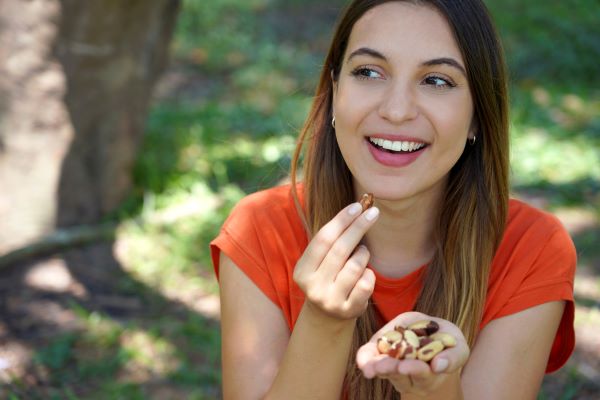-
Over 1 million Australians currently have osteoporosis, a condition in which the bones become thin and fragile, leading to a higher risk of fractures and breaks. Osteoporosis occurs when bones lose minerals such as calcium more quickly than the body can replace them, leading to a loss of bone density.
Osteoporosis Australia says it is important that low bone density is detected as early as possible, so that your bone health can be monitored and managed. Read on to understand the risk factors, and how bone density testing works.
Osteoporosis risk factors
First, it’s important to understand your risk of osteoporosis. Both men and women can develop osteoporosis, but it is most common in women over 50. Females are at a greater risk because of the rapid decline in oestrogen levels during menopause. When oestrogen levels decrease, bones lose calcium and other minerals at a much faster rate. As a result, women’s bones lose density at a rate of around 2 per cent a year for several years after menopause.
For men, age-related hormonal changes also impact bone density, but because testosterone levels in men decline more gradually, bone mass is more likely to remain adequate.
READ MORE: Osteoporosis in men
As well as age and gender, your family history, medical history and lifestyle factors can also impact your bone density. Some other risk factors for osteoporosis include:
- Family history of osteoporosis
- Low calcium intake
- Low vitamin D levels
- Low body weight
- Obesity
- Low levels of physical activity
- Smoking
- Excessive alcohol intake
- Use of medications such as corticosteroids, some antidepressants, and some epilepsy medications
- Low hormone levels
- Thyroid conditions
- Coeliac disease, inflammatory bowel disease, and other conditions relating to malabsorption
- Some chronic diseases such as rheumatoid arthritis or chronic liver or kidney disease
Bone density testing
So how do you know if you need to focus on your bone health? Osteoporosis Australia advises that you review your risk factors with your doctor, and if there is any concern your doctor will refer you to have a bone density test. A bone density test is a simple scan that measures the density of your bones, usually at the hip and spine. The results will show if your bones are in the normal range, a low bone density range (known as osteopenia), or if you have osteoporosis.
Whether you need a bone density test or not, there are some things you can do to maintain strong and healthy bones. Read more on [how you can increase bone density naturally](http://How can I increase bone density naturally? It’s never too early or too late to protect your bones from osteoporosis. Here are our top six tips: Get the calcium you need: If you’re not getting enough calcium, your body will take it from your bones. A healthy, balanced diet should include a variety of foods with an adequate intake of calcium; primarily dairy foods but also green leafy vegetables and tofu. Recommendation for adults: 2.5 serves of milk, yoghurt and cheese a day and four serves for women over 50. Be exercise smart: While any type of exercise is great for general health, there are some specific things you can do for bone strength. Weight bearing exercises such as brisk walking, jogging, skipping, team sports like basketball and netball, tennis, dancing, aerobics and stair walking all tick the bone-strengthening boxes. Regular exercise at least three times a week is best. Ramp up the resistance: Progressive resistance training is when you build up resistance over time. Try lifting hand or ankle weights or using gym equipment and continue to increase the challenge. Boost your vitamin D: This can help you absorb calcium, so it’s important for healthy bones. In Australia we get most of our Vitamin D from the sun and a little bit from our diet. Although make sure you don’t overdo it and remember to be sun smart in Australia’s harsh climate. Your doctor may advise on vitamin D supplements if you are concerned you’re not getting enough through your diet. Ditch the smokes: If you need another reason to quit smoking, here it is: smokers have lower bone density which may increase the risk of developing osteoporosis. Go low on salt, caffeine and alcohol: Limit your intake of these and instead opt for a healthy, balanced diet with a variety of fruits, vegetables and whole-grains.).
What is osteoporosis?

-
Eat for your eyes
Some of our favourite foods to help keep your eyes healthy.
-
How is ‘phubbing’ hurting your relationships?
Here’s how to stop phubbing and be more mindful of your phone habits, to help improve face to face interactions with your family and friends.
-
Are the winter blues real?
Simple ways to boost your mood in winter.
-
Mental fitness explained
Just as you work to strengthen your body, your mental health deserves attention and exercise too.
-
The link between stress, anxiety and jaw pain
Physiotherapist Michael Chan explains how stress and anxiety can cause jaw pain, and how to help get some relief.
-
When you can't sleep next to your partner
You love everything about them – except their sleep habits.
Subscribe to receive the best from Live Better every week. Healthy recipes, exercise tips and activities, offers and promotions – everything to help you eat, move and feel better.
By clicking sign up I understand and agree to Medibank's privacy policy





.jpg)
